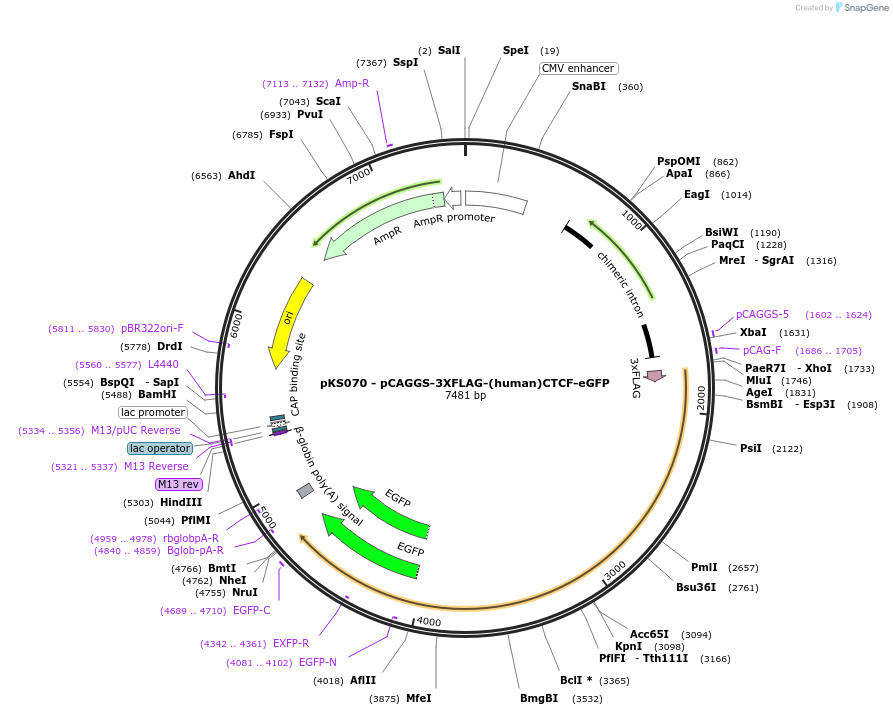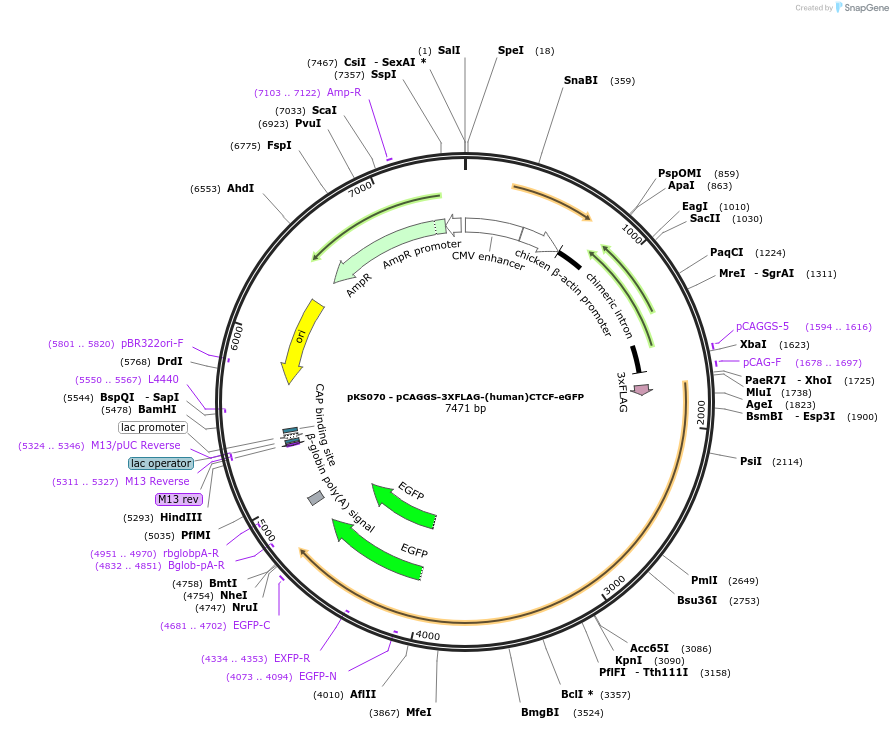-
PurposeFor transient expression of human CTCF tagged with eGFP
-
Depositing Lab
-
Sequence Information
Ordering
| Item | Catalog # | Description | Quantity | Price (USD) | |
|---|---|---|---|---|---|
| Plasmid | 156448 | Standard format: Plasmid sent in bacteria as agar stab | 1 | $89 | |
Backbone
-
Vector backbonepKS070-pCAGGS-3XFLAG-(human)CTCF-eGFP
-
Vector typeMammalian Expression
Growth in Bacteria
-
Bacterial Resistance(s)Ampicillin, 100 μg/mL
-
Growth Temperature37°C
-
Growth Strain(s)DH5alpha
-
Copy numberHigh Copy
Gene/Insert
-
Gene/Insert namehuman CTCF
-
SpeciesH. sapiens (human)
-
Mutationnone
-
Entrez GeneCTCF (a.k.a. CFAP108, FAP108, MRD21)
Cloning Information
- Cloning method Gibson Cloning
Resource Information
-
Supplemental Documents
-
Article Citing this Plasmid
Terms and Licenses
-
Academic/Nonprofit Terms
-
Industry Terms
- Not Available to Industry
Trademarks:
- Zeocin® is an InvivoGen trademark.
Depositor Comments
This plasmid has been found to have dimerized. Plasmid dimerization often does not impact plasmid function, but may reduce transformation efficiencies. If you still need to isolate the monomeric version, you might consider linearizing, gel extracting, re-ligating, and transforming the plasmid.
These plasmids were created by your colleagues. Please acknowledge the Principal Investigator, cite the article in which the plasmids were described, and include Addgene in the Materials and Methods of your future publications.
-
For your Materials & Methods section:
pKS070 - pCAGGS-3XFLAG-(human)CTCF-eGFP was a gift from Elphege Nora (Addgene plasmid # 156448 ; http://n2t.net/addgene:156448 ; RRID:Addgene_156448) -
For your References section:
Molecular basis of CTCF binding polarity in genome folding. Nora EP, Caccianini L, Fudenberg G, So K, Kameswaran V, Nagle A, Uebersohn A, Hajj B, Saux AL, Coulon A, Mirny LA, Pollard KS, Dahan M, Bruneau BG. Nat Commun. 2020 Nov 5;11(1):5612. doi: 10.1038/s41467-020-19283-x. 10.1038/s41467-020-19283-x PubMed 33154377




